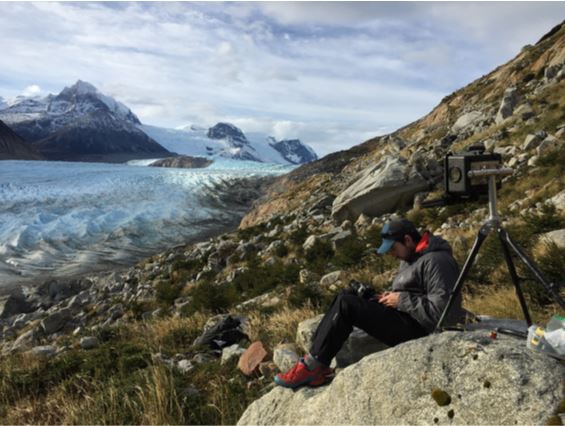June 20, 2018
Published by BC3Research at June 20, 2018
Categories
Esta expedición científica ha supuesto el primer trabajo de campo del investigador predoctoral de la UPV-EHU y guest researcher de BC3, Eñaut Izagirre Estibaritz, que se encuentra realizando su proyecto de investigación titulado “Evolución de glaciares y lagos proglaciares en respuesta al cambio climático en el Campo de hielo Cordillera Darwin, Tierra del Fuego, Chile”.
July 2, 2018
Published by BC3Research Ainhoa Magrach at July 2, 2018
Categories
Ainhoa Magrach, becaria post-doctoral Juan de la Cierva en el Basque Centre for Climate Change ha accedido a esta beca por su trabajo titulado. “Entendiendo el rol funcional de los colibríes migradores en redes de interacción planta-polinizador a lo largo de un gradiente latitudinal (cardinal)”. Las Becas Leonardo están destinadas a apoyar directamente proyectos personales de investigadores y creadores culturales en estadios intermedios de su carrera, entre 30 y 45 años, que se caractericen por una producción científica, tecnológica o cultural altamente innovadora.
September 3, 2018
Published by BC3Research Ignacio Palomo at September 3, 2018
Categories
The Multidisciplinary Expert Panel of the Intergovernmental Science-Policy Platform on Biodiversity and Ecosystem Services (IPBES) has selected Ignacio Palomo to be Lead Author for Chapter 3 of the Methodological assessment regarding the diverse conceptualization of multiple values of nature and its benefitsThe assessment of diverse values of nature, which begins this year, will be conducted over the next three years and be presented to the Plenary of IPBES at its 9th session.
September 26, 2018
Published by BC3Research Anil Markandya at September 26, 2018
Categories
Most land use (change) decisions are still based on incomplete information about the real welfare effects (costs and benefits) because many so-called externalities (positive and negative) associated with the change in land use and management are neglected. This leads to loss and degradation of ecosystems and their services affecting human well-being. Worldwide more than 25% of the land surface is now more or less degraded (UNCCD Global Land Outlook, 2017), costing between 4 and 20 trillion US$/year in terms of damage, repair or replacement costs (Costanza et al., 2014).




